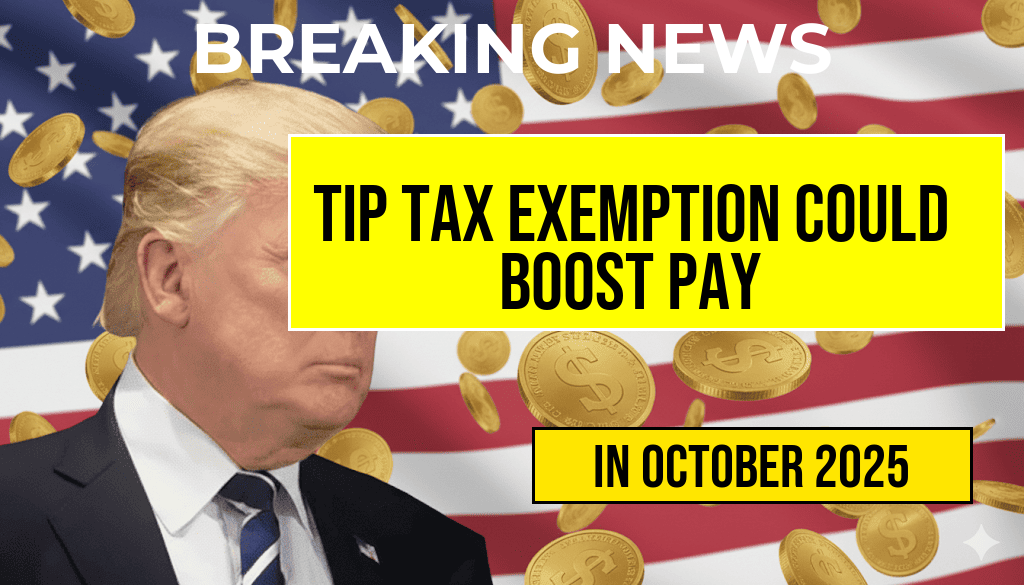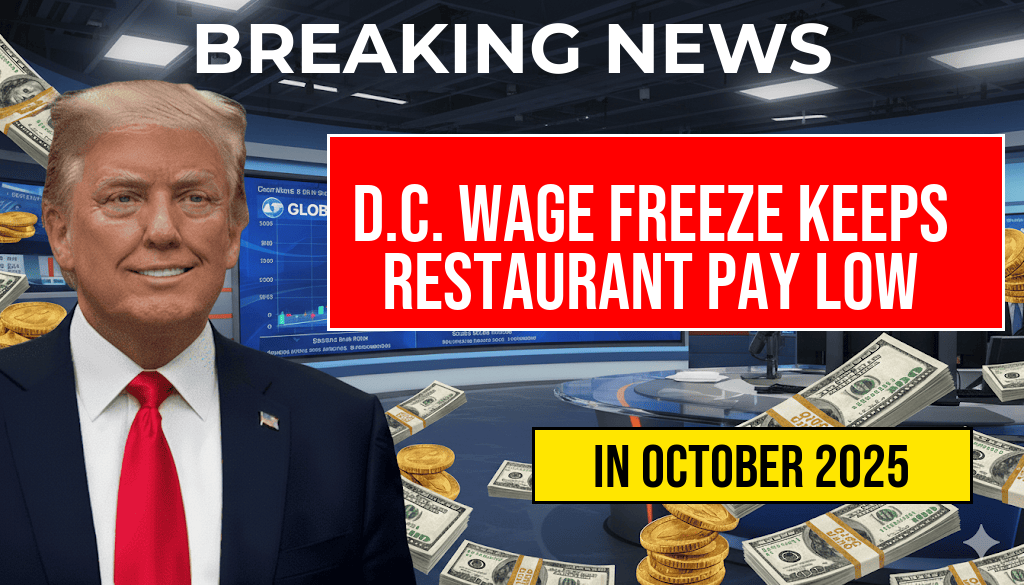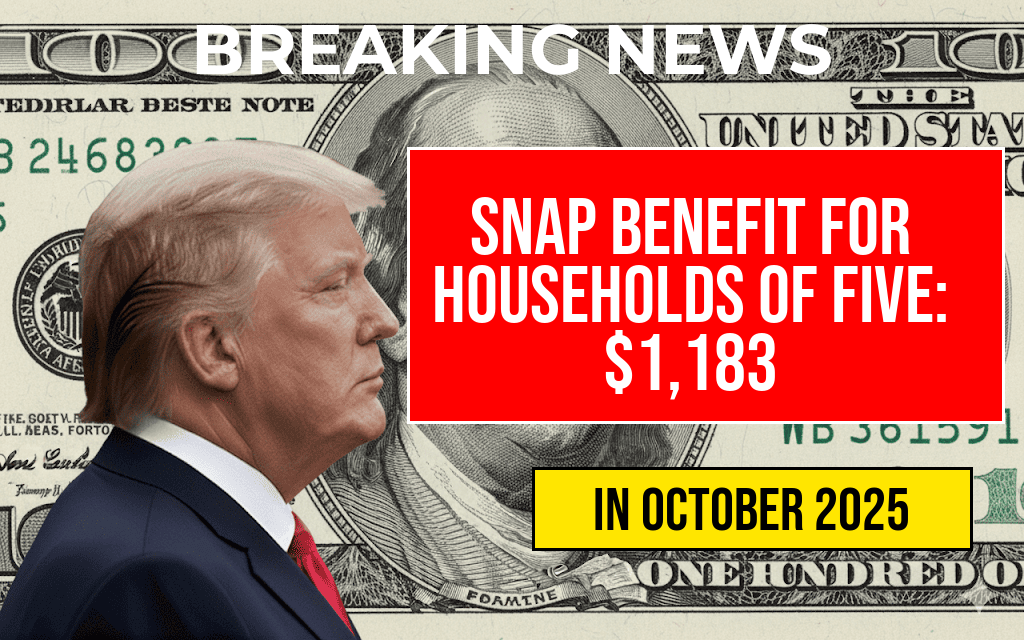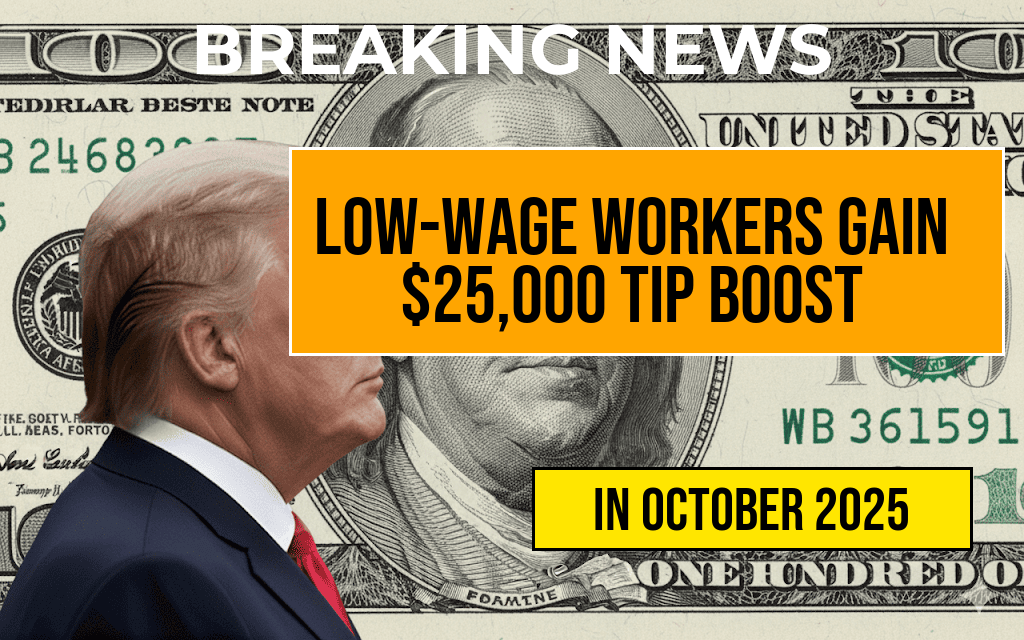Workers across the United States may see a significant increase in their take-home pay as a result of new regulations regarding the taxation of tips. According to recent estimates, the removal of taxes on tips could add as much as $25,000 to the annual earnings of employees in the service industry. While this change may provide a welcome boost to many, it’s essential to understand that payroll taxes will still apply to these earnings. This article examines the implications of the tip tax exemption, shedding light on how it can impact workers’ financial situations and the service industry as a whole.
Understanding the Tax Structure for Tips
Traditionally, tips have been considered taxable income in the United States, subject to federal and state income taxes. However, the proposed shift to exempt tips from taxation is garnering attention, particularly among waitstaff, bartenders, and other service workers who rely heavily on gratuities.
How the Tip Tax Exemption Works
The proposed exemption allows employees to retain the full amount of their tips without having to report them as taxable income. This change is expected to enhance the financial stability of service workers, particularly those in areas with high tipping cultures. Here’s how this exemption may affect earnings:
- Increased Net Income: With no tax deductions on tips, employees can keep the entirety of their gratuities.
- Encouragement for Tipping: Customers may feel more inclined to tip generously, knowing that the full amount goes directly to the workers.
- Economic Benefits: Increased disposable income for workers can lead to higher spending in local economies.
Payroll Taxes Still Apply
Despite the favorable shift concerning tips, it’s critical for workers to recognize that payroll taxes, including Social Security and Medicare taxes, will still be deducted from their overall income. This means that while the exemption may increase take-home pay from tips, workers will not be entirely free from tax obligations. Here’s a breakdown of how payroll taxes work:
| Type of Tax | Rate | Purpose |
|---|---|---|
| Social Security Tax | 6.2% | Retirement benefits |
| Medicare Tax | 1.45% | Healthcare for seniors |
| Additional Medicare Tax | 0.9% (above certain income thresholds) | Additional funding for Medicare |
Potential Impacts on the Service Industry
The exemption from taxes on tips could have broad implications for the service industry. Businesses may need to adapt to this new financial landscape in several ways:
- Wage Adjustments: Employers might reconsider their wage structures, especially for positions that receive significant tips.
- Employee Retention: Higher take-home pay could help businesses retain skilled workers in a competitive job market.
- Customer Relations: Enhanced service quality may arise as workers feel more valued and motivated by increased earnings.
Debate Surrounding the Change
While the proposal to eliminate taxes on tips is gaining traction, it has sparked debate among economists and policymakers. Advocates argue that this measure will alleviate financial stress for service workers and stimulate local economies. However, critics caution that it could lead to inconsistencies in income reporting and challenge the federal tax system’s integrity.
As discussions surrounding this policy continue, it remains important for workers to stay informed about potential changes and prepare for how these adjustments may impact their financial futures. The debate underscores the ongoing struggle for fair wages and working conditions in the service sector.
For more information on federal tax policies and their implications, check sources such as Forbes and Wikipedia.
Frequently Asked Questions
What does it mean that there is “No Tax on Tips”?
The phrase “No Tax on Tips” refers to the exemption of certain gratuities from income tax, potentially leading to an increase in your take-home pay.
How can not taxing tips increase my paycheck by $25,000?
By not taxing your tips, you may see a significant boost in your overall earnings, potentially increasing your annual paycheck by up to $25,000 if you receive substantial tips regularly.
Are payroll taxes still applicable on my tips?
Yes, while tips may not be subject to income tax, payroll taxes such as Social Security and Medicare taxes still apply to your tip income.
Who benefits the most from the “No Tax on Tips” policy?
Service industry workers, such as waitstaff and bartenders, often benefit the most from this policy, as they typically receive a significant portion of their income from tips.
Will this policy affect my overall tax situation?
While the “No Tax on Tips” policy can increase your net income, it is essential to consider how payroll taxes and other tax liabilities may still impact your overall tax situation.






